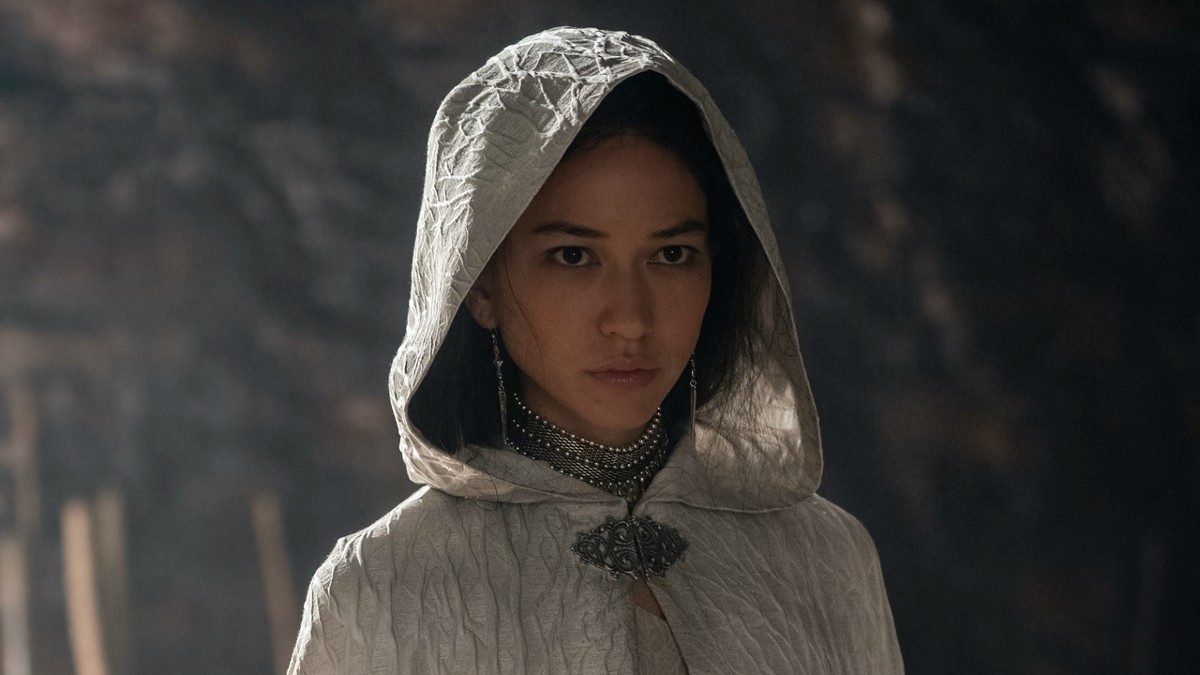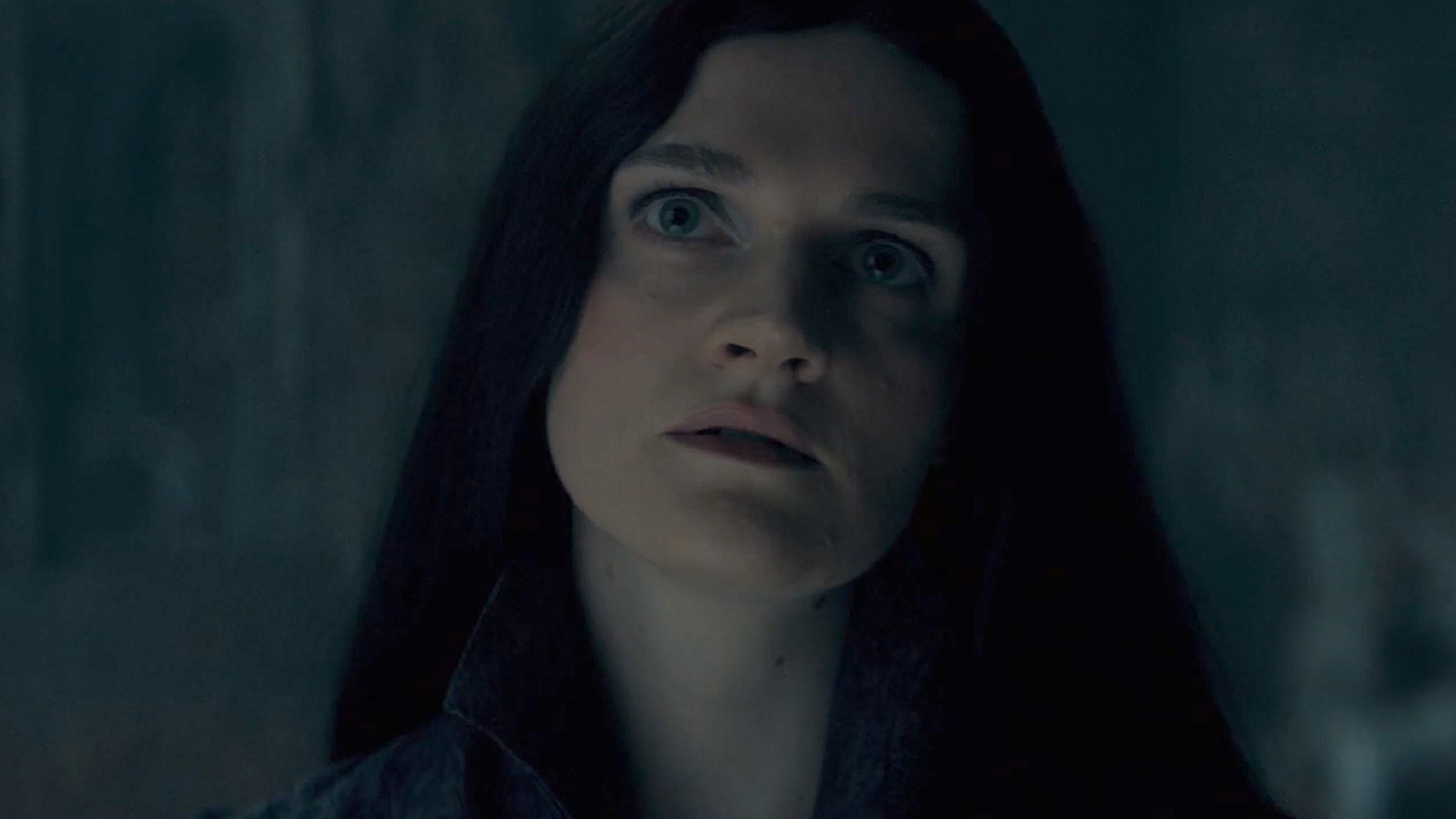Season one of House of the Dragon was very much about the contentious relationship between Alicent and Rhaenyra—and also the men who manipulated them to gain power in Westeros. Misogyny is still alive and well in season two; it’s something both women repeatedly encounter despite their positions of power. But in the background, a trio of female characters have begun to demonstrate other ways to make a difference.

Mysaria

When we met Mysaria in season one, she was a prominent figure on the seedier streets of King’s Landing, running a brothel while also maintaining a spy network under her secret identity, “the White Worm.” Her close association with Daemon helped her succeed, but their relationship soured when she realized how selfish he was—telling his family she was pregnant with his child during one of his schemes to reclaim his place as King Viserys’ heir.
When they reconnect in season two, there’s zero flicker of warmth between them, though he does agree to free her from prison after she supplies him with the most valuable currency in Westeros: information.
That information leads to the whole Blood and Cheese affair. But as Mysaria makes very clear to Rhaenyra—who’s curious about this smart, cynical, well-connected woman; she’s about the same age as Rhaenyra, with an entirely different life experience to draw on—she has no political allegiances. All she cares about is getting paid, a survival strategy that’s helped her create opportunities in a world where every door has been routinely slammed shut in her face.
We see that start to shift when interactions between Mysaria and Rhaenyra—who initially bond over their shared annoyance with Daemon—begin to soften. After Mysaria helps save Rhaenyra from an assassination attempt, she explains she’d rather have a place at court rather than a monetary reward. Whether she realizes it or not, Rhaenyra can really use her help. Her need for a female confidant is more urgent in the absence of Rhaenys, especially now that her Small Council is questioning her ability to lead because she’s of “the gentler sex.”
In the most recent episode, “Regent,” we saw Mysaria really step into her role of Mistress of Whispers. She’s the Team Black equivalent of Red Keep lurker Lord Larys Strong, but without all the manipulative vibes that run through his influence over Team Green.
Notably, she supports Rhaenyra’s claim to the Iron Throne because she thinks Rhaenyra will be kinder to the small folk—Mysaria’s own people, the ones who so often suffer thanks to decisions made by those in charge. She knows that the people will play an important role in the Dance of the Dragons, and counsels Rhaenyra not to overlook the importance of swaying public opinion. With King’s Landing on edge—people are starving and scared, and Ser Criston Cole’s dead-dragon parade didn’t help one bit—it’s time to seize the moment the way the White Worm knows best: “What you cannot do, let others do for you. There is more than one way to fight a war.” When Mysaria gives advice, you know it’s real talk.
Baela

Prior to the most recent episodes, House of the Dragon hadn’t turned much focus on Daemon’s daughters with his late second wife. But in “Regent,” his oldest, Baela, really steps up. She’s betrothed to Jace, Rhaenyra’s oldest son; he’s the prospective heir to the Iron Throne, if the Dance of the Dragons goes Rhaenyra’s way.
Though we haven’t seen many romantic sparks between them, there’s clearly a shared sense of respect; they’re both dragon riders, after all. So Baela is the natural choice for Jace to talk to when he decides it’s high time he involved himself in the war effort. She suggests maybe not busting in on Daemon at Harrenhal, which would surely have turned sideways considering Daemon’s flagging loyalty to Rhaenyra. And his second-choice journey—to meet with the Freys at the Twins—goes even better than expected.
Elsewhere in the episode, we see Baela speaking to her grieving grandfather, Lord Corlys, to ask him to put aside his raw feelings about Rhaenys’ death to be Rhaenyra’s Hand of the Queen. His presence is dearly needed in the Small Council, and as much as he’d rather sail into the horizon and never return, Baela’s plea strikes a chord. Do we have a master negotiator on the rise?
Alys Rivers

Though she’s recently befriended—or whatever the equivalent of “frenemy” is, in that context—Daemon, Riverlands bastard Alys Rivers is neither Team Black nor Team Green. Harrenhal, where she lives and works as a healer, is a spooky place, and Alys seems right at home flitting around its haunted halls.
She has a sixth sense of sorts—she knows what’s in Daemon’s dreams, and she’s probably playing a part in all those trippy visions he’s been having—and though he’s called her a witch, her powers may be even more potent than he realizes. We’ve seen her poke into his most vulnerable emotional hotspots; she intuited that he wasn’t at Dragonstone because he had an argument with Rhaenyra, and she’s further dared to suggest he’s no longer supporting his wife’s claim to the Iron Throne.
In “Regent,” we also see her call him out for encouraging torture and worse against women and children, part of his scheme to force House Bracken’s soldiers to join his army. “This is not war,” she says. “These are crimes against the innocent.” Alys is bold. She speaks her mind. She is unafraid of Daemon. And she has a sense of humor! (After all, she’s not a woman at all—she’s a barn owl, forced to live in human form.) Her path ahead is murky, but she brings a trickster energy to Harrenhal’s gloom whenever she’s around.
New episodes of House of the Dragon arrive Sundays on HBO and Max.
Want more io9 news? Check out when to expect the latest Marvel, Star Wars, and Star Trek releases, what’s next for the DC Universe on film and TV, and everything you need to know about the future of Doctor Who.




















+ There are no comments
Add yours